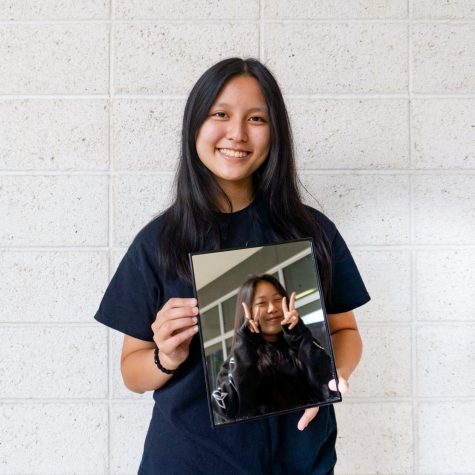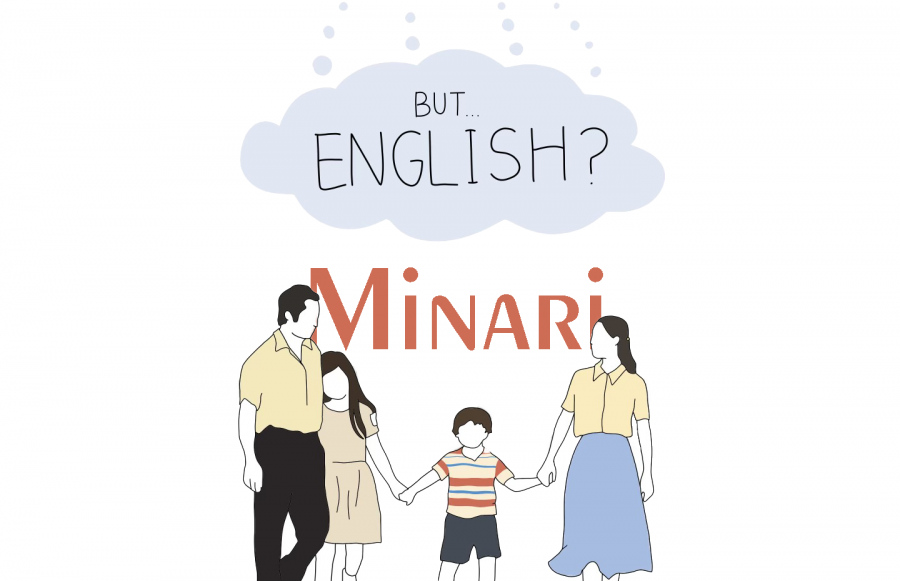Best Foreign Language Film, ‘Minari,’ is the Most American Film Ever Made
“Minari” won a Golden Globe for Best Foreign Language Film after being disqualified from competing for Best Picture due to containing dialogue that was less than 50% in English. “When it won, what should have been a moment of collective joy felt like the award equivalent to the backhanded compliment: ‘Your English is so good!,’” author Nancy Wang Yuen said in an NBC article.
How do you speak American? Despite the wide array of cultures found in this nation and the notion that the United States has no official language, according to the Golden Globes, the answer is simple: you speak English.
Nowhere is this blatant inequity more apparent than with the recent film “Minari,” which tells the story of a Korean American family who relocates to rural Arkansas in pursuit of the American Dream.
The Hollywood Foreign Press Association, the organization that hosts the Golden Globes, stipulates that films with over 50% of its dialogue in a non-English language will be considered under the Best Foreign Language Film category. Around 70% of the dialogue in “Minari” was in Korean, and as such, it was shut out from the Best Picture category, eliciting justified outrage.
“It was set in America,” social studies teacher Shameemah Motala said. “It was an American cast. The crew was American. Well, some of the cast members were American. The director’s American … So I think that’s a bogus thing to not nominate ‘Minari’ for Best Picture when it clearly was, if anything, a very American movie where it told about the struggles of immigration and how people want to make that American Dream. So I think it was probably a more American movie than several of the ones that were actually nominated.”
According to the United States Census Bureau, 21.6% of Americans ages five and older speak a language other than English at home. Furthermore, the Pew Research Center states that first and second-generation immigrants make up nearly 27% of the U.S. population.
In that regard, films like “Minari” are anything but foreign. They are accurate reflections of millions of Americans’ lives. They are opportunities for minorities to finally feel seen and represented in a society that often allows for neither to occur.
“The entire movie, my mom and grandma, they kept saying the same exact thing in Korean,” junior Abigail Kwon said. “They kept saying, ‘This is our story,’ you know? We obviously don’t have a farm in Arkansas, but my grandparents struggled a lot to be able to set up their life for their kids here. I think it was just a really special moment that I probably wouldn’t have been able to share with them if the film hadn’t existed.”
What makes the “Minari” controversy especially frustrating is how the rule regarding English dialogue is applied inconsistently and unfairly. Quentin Tarantino’s film, “Inglorious Bastards,” consisted of dialogue that was roughly 70% in German or French, but it still qualified for a Best Picture nomination in 2010, according to Variety.
Minari’s relegation to the Foreign Language Film category is a cruel reminder that no matter how many times America touts its diversity, at the end of the day, minorities are still seen as “others.”
The Golden Globe should instead allow foreign language films to compete in both Best Picture and Best International film, similar to how the Oscars does it, according to TIME. That way, the Golden Globe will not be able to pick and choose which films are deemed “American” and “foreign.”
“‘Minari’ is about a family,” director Lee Isaac Chung said during his acceptance speech for Best Foreign Language Film. “It’s a family trying to learn to speak a language of its own. It goes deeper than any American language and any foreign language. It’s a language of the heart, and I’m trying to learn it myself and to pass it on, and I hope we’ll all learn how to speak this language of love to each other, especially this year.”
Your donation will support the student journalists of Portola High School. Your contribution will allow us to purchase equipment and cover our annual website hosting costs.

Celine Lee is this year’s co-editor-in-chief for her third and final year on the Pilot! She is beyond excited to make the most out of her senior year...

Charlotte Cao is the Features Editor for her third and, unfortunately, final year on the Pilot. Whether it be through the co-writing of stories or during...

Jaein Kim is the Director of Photography this year on the Portola Pilot. She is extremely passionate about visual media ranging from digital art to videography...





